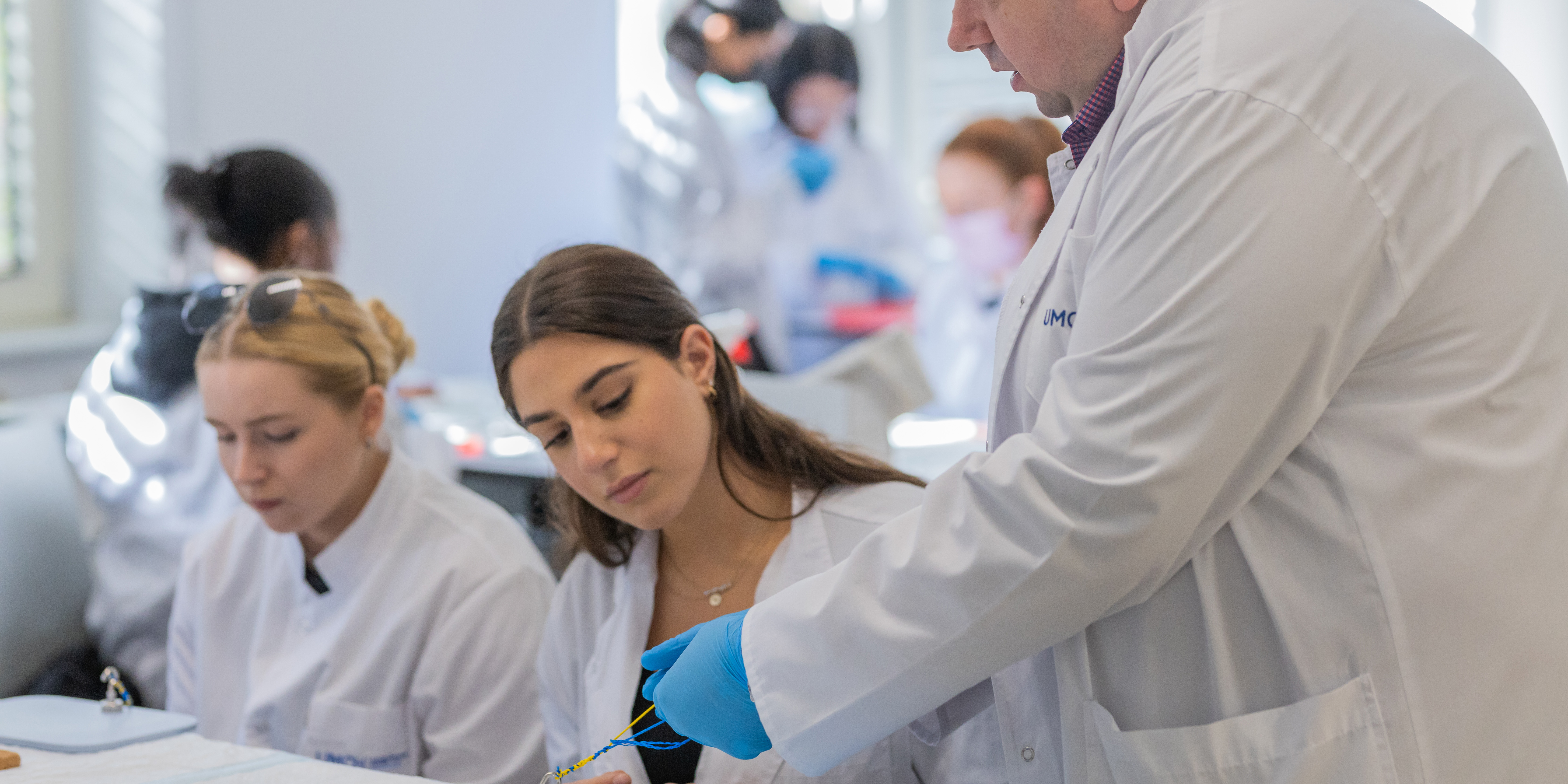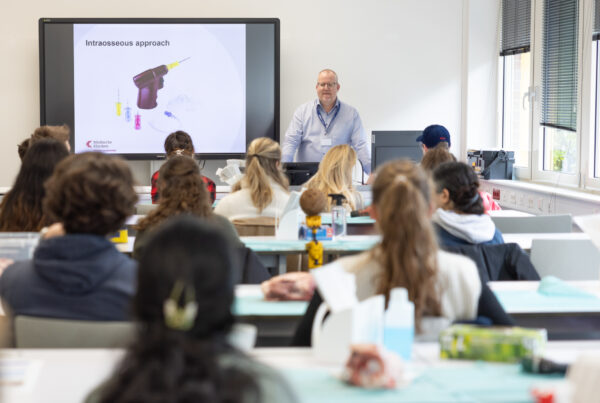
Assoc. Prof. Cosmin Popa, UMFST-UMCH faculty member teaching Behavioral Science, has been recognized as a certified CBT therapist by the Beck Institute for Cognitive Behavior Therapy. This is a special distinction and honor, as the Beck Institute was established by the founder of Cognitive Behavior Therapy (CBT), Aaron T. Beck himself. To find out more, we asked Prof. Popa about the significance of this special recognition. We also spoke to him about the various components of the Counseling Program that students at the UMCH Campus can take advantage of. Prof. Popa is head of the program, in which his colleagues Assist. Alina Schenk and Assist. Cristiana-Manuela Cojocaru are also involved. The comprehensive Counseling Program includes Educational Coaching, Career Counseling, Psychological Counseling as well as Cognitive Behavioral Therapy and provides invaluable support to students on their academic journey.
UMCH: Please tell us a little more about your newly acquired status as a CBT Certified Clinician by the Beck Institute in Philadelphia, USA. What exactly is the significance of this certification and how can the students of the Hamburg campus benefit from the fact that you have obtained it?
Assoc. Prof. Cosmin Popa: First of all, I would like to thank you for this opportunity to discuss my certification at the Beck Institute. Simply put, this process can be considered international recognition of an individual’s knowledge and skills in Cognitive-Behavior Therapy (CBT), serving as proof that the clinician has the ability to treat various psychological disorders. Naturally, there are many advantages to this certification in relation to the academic process in Hamburg. For example, we are already incorporating some of this information into our courses, and we have integrated Beck’s CBT protocols into the counseling program activities.
UMCH: What components does the Counseling Program include to provide an overall guide to achieving optimal academic performance?
Assoc. Prof. Cosmin Popa: The Psychological Counseling program comprises educational coaching and career advice components that focus on enhancing academic adaptation and decision-making. In addition to these components, the program also includes Psychological First Aid and Cognitive Behavioral Therapy, with the aim of supporting students during times of crises and increased distress.
UMCH: What measures does the program take in the area of Career Advice to ensure a smooth transition of students from education to professional practice?
Assoc. Prof. Cosmin Popa: By concentrating on facilitating informed decisions about future medical specialties, the Career Advice program assesses students’ personality traits and engages in discussions regarding how their profiles align with the specific requirements of various professional contexts or medical specialties. This process also involves enhancing personal strengths and the opportunity to improve necessary skills.
UMCH: To what extent can Psychological Counseling play a role in dealing with stress, performance pressure, and other emotional challenges that medical students face?
Assoc. Prof. Cosmin Popa: Psychological Counseling aims to alter one’s perception and attitude toward various life events, including academic situations, by promoting a healthy thinking style. In this way, emotional and behavioral reactions to stressful situations can become adaptive and functional, helping students achieve their goals while maintaining overall well-being.
UMCH: What specific techniques of Cognitive Behavioral Therapy are used in the program to help students cope with stress and build resilience?
Assoc. Prof. Cosmin Popa: Grounded in the cognitive model developed by Aaron T. Beck, which emphasizes the role of negative automatic thoughts and beliefs in the occurrence of emotional disorders, a commonly utilized technique is cognitive restructuring. This involves employing Socratic questions and guided discovery to identify alternative ways of thinking. Alongside these cognitive techniques, behavioral strategies such as activity planning, exposure, relaxation techniques, as well as acceptance-based and mindfulness approaches are also applied.
UMCH: How does the program help students maintain a balanced lifestyle, especially given the demanding and challenging nature of medical school?
Assoc. Prof. Cosmin Popa: By enhancing students’ problem-solving and practical skills, the program contributes to maintaining a balanced lifestyle. Specifically, effective time management, sleep hygiene, and accelerated learning techniques are implemented in this regard.
UMCH: Can you share examples of success stories from the Counseling Program where students have benefited from your advice and support?
Assoc. Prof. Cosmin Popa: After completing the Career Advice program, most students find it valuable to receive confirmation regarding their choice of a future medical specialty or an increased awareness of potential challenges associated with the medical profession. I recall a situation involving one of our students—an exceptionally bright student with impressive academic results. Her initial aspiration was to become a surgeon, but upon assessing her personality, we noted a high level of agreeableness. This indicated her empathy, compassion, and sensitivity, suggesting that a specialty like psychiatry or pediatrics might be more fitting. I recommended she pursue psychiatry based on her personality profile. Three years later, I received an email from her as she was then a resident doctor in psychiatry in France, expressing gratitude for the professional advice. Moreover, counseling activities have helped many of our students learn to manage their emotions, particularly anxiety, and deal with difficult situations in a more effective, functional manner.
Gallery:











